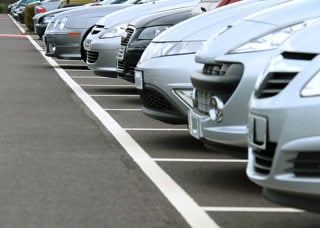Tax experts have warned that Approved Mileage Allowance Payments (AMAP) for grey fleet drivers could come under scrutiny with calls for evidence on employee expenses by the Government.
It is part of a four-year review by the HMRC and the Office of Tax Simplification (OTS), aimed at bringing expenses and benefits taxation into line with 21st century working practices and technologies.
Nick Davies, director, employer consulting at BHP Chartered Accountants, believes advisory fuel rates (AFR) for business travel will not be impacted by the call for evidence. However, he said AMAP rates could be targeted.
Davies said a significant area in which employees are claiming tax relief is where employers do not pay the full AMAP rates for drivers that use their own car for business.
AMAP rates are currently 45p per mile for the first 10,000 business miles annually and 25p per mile thereafter.
Davies said: “We do see situations where, say, a driver travelling 10,000 miles is only reimbursed at 35p per mile. This means they can claim tax relief for the balance up to 45p which in this case would total £1,000.”
Company car tax expert Alastair Kendrick said the Government will want fleets to provide reasons why employers decide to use a lower rate to reimburse employees when an AMAP is available.
Kendrick continued: “The review could decide that it is the responsibility of the employer to be making sensible reimbursement of costs and that it should not be the job of Government to subsidise or support further. This would make things easier for HMRC.”
HMRC has said the tax relief on expenses which employers do not reimburse employees costs the Exchequer £800 million per year. It also noted that there was a 25% increase in claims between 2009-10 and 2014-15.
When employers reimburse expenses, this does not need to be reported to HMRC (in effect, the expense is just ignored for tax purposes) so the Government has limited data on how much the tax relief for reimbursed expenses is worth.
The Government said the evidence given will help to shape how tax rules are developed.
Kendrick said that while AMAP rates could be affected, the call for evidence is very broad and the scope of any decisions will be made following the consultation process.
He said this could also be a good opportunity for fleets to give the Government feedback on clarity surrounding what can be reimbursed for electricity used for those driving plug-in vehicles.
“The rules are vague and there is concern that some of what may be provided may be considered taxable. This clarification is long overdue,” Kendrick said.
Davies agrees that a review is overdue, with current rules dating back more than 170 years. He said: “There is a need for simplification and clarity. Whether this will also lead to a tightening of the rules governing what can be claimed is open to question.”
Paul Hollick, managing director of The Miles Consultancy, welcomed the review and said that anything that simplifies making expenses claims and calculating any tax relief on expenses is welcome.
“The consultation is a chance for fleet operators of all sizes to make their views known,” he added. “As HMRC wants to hear from employees too, employers might want to canvass drivers’ opinions before responding.”
Hollick also called for clarity around plug-in vehicles. “The OTS recommends taking EV charging out of any liability for benefit tax,” he said. “That would be both a tax simplification and an incentive for greener fleets. But in 2013, the OTS said it was too early for such a move.
“Fleet uptake of EVs has now progressed to the point where hopefully some of the feedback to this new consultation will persuade the Government to implement the exemption.”
Fleets that would like to contribute evidence can do so through the HM Treasury website and the deadline is June 12, 2017.






















Rob Chisholm, Applewood Vehicle Finance Ltd - 21/04/2017 12:50
Not before time. I've never been able to understand why the Government should subsidise businesses that offer an opt out from the company car, a decision they probably took to improve their financial position in the first place, only to then underpay their employees knowing full well that the Government would take up some of the slack for them. It's the same principle behind In-Work benefits paid to employees who are underpaid by their employers. Why should the rest of us who act ethically subsidise those who don't?